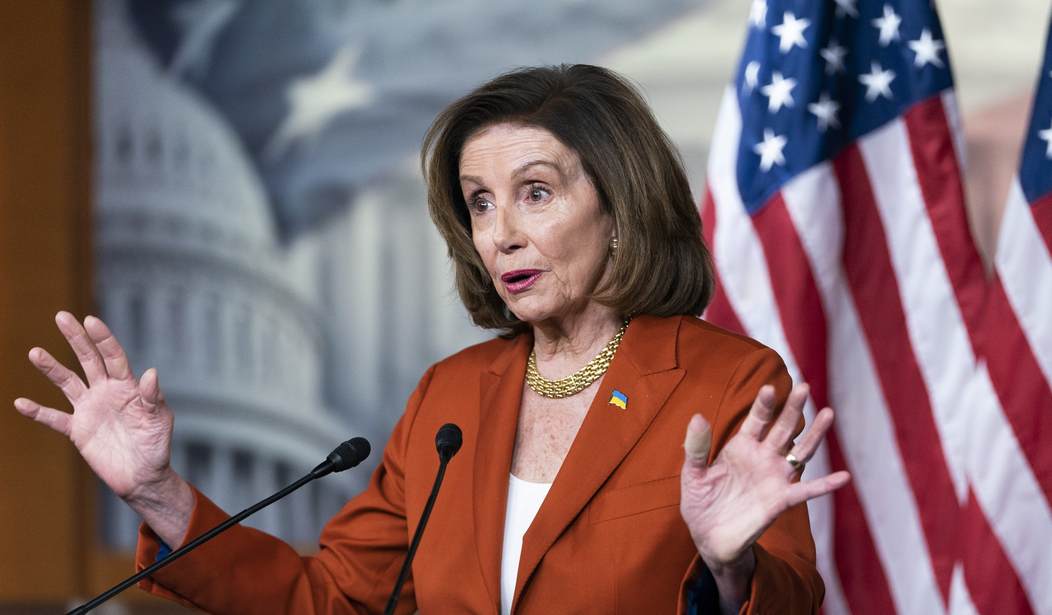It’s no secret that the Democrats have had a rough time of it this year when it comes to the new congressional district maps being implemented in many states. It hasn’t gone well for them in New York and now it’s arguably going even worse in Florida. So why have the wheels been coming off in this fashion? Well, racism of course, because that’s the cause of virtually everything. But it turns out that complaints are being raised the redistricting process is also unfair to women. Why? Because some junior female members of Congress may wind up running in tougher districts than they competed in two years ago. And a couple of them have found themselves in primary battles against other women. How could something like this happen? (Insert sarcasm emoji here.)
Democrats took control of the U.S. House of Representatives in 2018 thanks to a record showing by Democratic female candidates. Two years later, a record number of GOP women won seats, bringing the number of women in the chamber to a historic high.
But for some female incumbents running for reelection this year, holding their seats comes with a new challenge: redrawn congressional districts that will be tougher to win.
It’s too early to know how many female representatives were hurt by the once-a-decade process known as redistricting — in which boundaries are redrawn based on census data to ensure similarly sized districts — because multiple states haven’t finalized their maps. But in states with new district boundaries, the Center for American Women in Politics at Rutgers University found more than a dozen women so far who are running in significantly tougher territory.
The Center for American Women in Politics at Rutgers has clearly spent quite a while analyzing every shift in the congressional map lines with an exclusive focus on whether or not it would impact female incumbents and challengers. They cite a number of examples, such as a primary race in Georgia this week where two female Democratic incumbents are being forced to face off against each other after their districts were mostly combined. The group describes many of these women as being “already vulnerable” because they’ve only been in office for one or two terms so they lack the advantage of long-term incumbency.
What this analysis seemingly fails to recognize is that these shifts in fortune are happening to everyone in the states where the maps are changing. And thanks to rampant gerrymandering, members of the party currently out of power in each state seem to “randomly” do worse than their opponents. This is true across both gender and racial lines.
Does anyone believe that these maps were intentionally drawn to make it harder for women to win elections? I mean, you can almost make the case that some maps have had a bit of racial bias underlying them, particularly since the states are generally required to carve out “minority-majority” districts where possible. But men and women are spread out fairly evenly across the country. Or at least I suspect that they are. I can’t say for sure because, after all, I’m not a biologist.
There also doesn’t seem to be any sort of inherent preferential bias in voting patterns along gender lines. Women vote for male candidates in great numbers all of the time. Look no further than Joe Biden’s support in 2020. Similarly, plenty of men have no problem voting for women. Hillary Clinton garnered essentially all of the male Democratic votes in 2016. For that matter, let’s not forget that white people have been voting for Black candidates in great numbers in the modern era also. Does anyone remember that guy who was president before Trump?
As I’ve written here more times than I can count, the current redistricting process sucks. But it’s not because of racism or sexism. It’s broken because of gerrymandering. There are methods available that would allow the states to cleanly and evenly map out districts of roughly the same population in a random fashion. But all of the states would have to agree to do it at the same time or it won’t work. And the parties holding power in each state don’t want to give up that leverage so we appear to be stuck with this broken system permanently.








